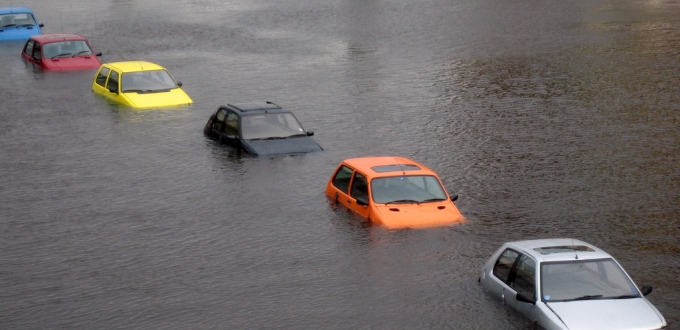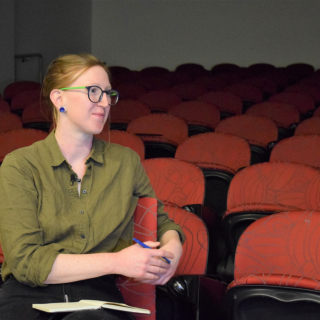Master of Climate Change

Overview
Solve complex global environmental problems as a climate change expert or policymaker with this graduate degree.
Upskill or retrain in an Australian Government National Priority Area
Gain a better understanding of current issues and approaches to climate change science and policy. Be prepared for a career in climate change risk assessment, adaptation and mitigation strategy development, and regional, national and international policy formulation.
Study in-person or online
In 2025, all graduate courses offered by the Crawford School will be available for either in-person or online study. All students are expected to attend live sessions at particular times each week for their courses. Crawford online courses are not ‘study at your own pace’. International students studying on an Australian student visa should enrol in in-person courses.
Participation
Real-time interaction, discussion and debate between students and with convenors is an central part of the learning experience. Attendance at interactive classes is important for both on campus and online students.
Degree overview
Are you eager to make a real and lasting contribution to an area of national priority for Australia?
Climate change is one of the greatest threats to humanity’s long-term survival. It is critically important that Australia has the people able to solve the complex problems climate change is creating and exacerbating through sound and considered policy making.
The Master of Climate Change (1.5 years full-time, or part-time equivalent) offers significant breadth and depth of study in climate change science and policy, including economics, law, policy and governance aspects.
Is this degree for me?
Taught by world-leading experts in climate change policy and science at The Australian National University (ANU), the Master of Climate Change provides you with the skills to decipher the problem of climate change through exposure to different lenses and perspectives.
You will develop an in-depth understanding and strategic insight into how to mitigate and adapt to the changing climate.
This degree caters to a diverse range of participants who are seeking to upskill or retrain: from policymakers working in high-level government and non-government organisations, to policy officers and middle managers in Australian government and industry, to university graduates with limited work experience who are seeking to enhance their qualifications in a competitive employment environment.
If your aim is to help secure a safer future as a specialist climate change professional, this degree is for you.
Why choose this program and study at Crawford School
- Degree designed to prepare you for a career in climate change risk assessment, adaptation and mitigation strategy development, and regional, national and international policy formulation
- Global policy and governance perspectives on climate change
- Strategies to improve policy performance
Taught by world-leading experts in climate change policy and science, this program provides you with the skills to decipher the problem of climate change through exposure to different lenses and perspectives.
Climate change is a global policy problem. Your in-depth understanding and strategic insight into how to mitigate and adapt to the changing climate will be in demand. You will benefit from drawing on expertise from the Crawford School of Public Policy and ANU’s highly-acclaimed Fenner School of Environment and Society.
Design a degree program that best reflects your education and career goals in the field of climate change, including the study of climate policy design and implementation; vulnerability and strategies for adaptation; the economics of climate change; climate science; and effective climate change communication and engagement.
Strengthen this knowledge with study in complementary fields – non-fossil fuel energy technologies and policies; integrated approaches to risk and vulnerability assessment; the legal dimensions of climate change; and the politics, policy and governance perspectives on climate change.
Related disciplines
- Applied Economics
- Climate
- Development Studies
- Economics
- Economic Policy
- Energy Change
- Environmental Science
- Environmental Studies
- Forest Science and Management
- Policy Studies
- Resource and Environmental Management
- Science
- Communication
- Renewable Energy
- Sustainability
- Sustainability Science
- Sustainable Development
Application Deadlines
Please note application deadlines are different for domestic and international students.
Domestic students
This program is with pre-sessional program (PSP) component for domestic students.
• Semester 1 2025 intake:
Application closing date: 15 Dec 2024
Acceptance date: 3 Jan 2025
Start date: 13 Jan 2025
• Semester 2 2025 intake:
Application closing date: 31 May 2025
Acceptance date: 1 June 2025
Start date: 12 June 2025
International students
Find ANU’s general application and acceptance deadlines by visiting the webpage linked here.
Key dates for application:
• Semester 1 2025 intake for private applicants:
Application closing date: 31 Oct 2024
Final acceptance date: 1 Dec 2024*
Start date: 13 Jan 2025
• Semester 1 2025 intake for scholarship/partnership applicants:
Application closing date: 15 Dec 2025
Final acceptance date: 3 Jan 2025*
Start date: 13 Jan 2025
• Semester 2 2025 intake for private applicants:
Application closing date: 15 April 2025
Final acceptance date: 15 May 2025*
Start date: 12 June 2025
• Semester 2 2025 intake for scholarship/partnership applicants:
Application date: 15 April 2025
Final acceptance date: 15 May 2025*
Start date: 12 June 2025
*Some students may need to accept well before this date to allow for visa processing times in their country.
View the full degree program structure, admission requirements and academic information.
To find out more, contact us at crawford.degrees@anu.edu.au today.
Degree structure
Duration
1 - 1.5 years full-time depending on credit.
Admission requirements
A Bachelor degree or international equivalent with a minimum GPA of 5/7. Or, for alternative requirements, click the link here.
Credit
Applicants with a Bachelor Degree, Bachelor degree with Honours, Graduate Certificate or Graduate Diploma in a cognate discipline may be eligible for up to 24 units credit.
Cognate disciplines
If you have prior study in one of the following cognate disciplines, you may be eligible for credit towards your degree:
- Applied Economics
- Climate
- Development Studies
- Economics
- Economic Policy
- Energy Change
- Environmental Science
- Environmental Studies
- Forest Science and Management
- Policy Studies
- Resource and Environmental Management
- Science
- Communication
- Renewable Energy
- Sustainability
- Sustainability Science
- Sustainable Development
Degree structure
The MCLIM degree offers a set of core compulsory courses combined with a range of electives so that you can design a degree program that best suits your career and educational goals in the Australian Government national priority area.
View the full degree program structure, admission requirements and academic information.
Academics
Keith Barney
Associate Professor & Head of Department: Resources, Environment, and Development Group
Contact details
Quentin Grafton
Professor and Laureate Fellow; Chairholder UNESCO Chair in Water Economics and Transboundary Water Governance
Contact details
Frank Jotzo
Professor, ANU Crawford School of Public Policy; Head of Energy, ANU Institute for Climate, Energy and Disaster Solutions.
Contact details
Kuntala Lahiri-Dutt AO
Professor, Resource, Environment and Development (RE&D) Program.
Contact details
John McCarthy
Professor, Crawford School; Resources Environment and Development program.
Contact details
News
- 1 of 6
- next ›
Scholarships and fees
Scholarships and support
Scholarship opportunities are available for national and international students.
Fees
Costs associated with your study at ANU will depend on a number of things, including your study program and whether you’re a national or international student.
Find out more about costs and fees associated with studying at ANU.
Updated: 21 November 2024/Responsible Officer: Crawford Engagement/Page Contact: CAP Web Team




































